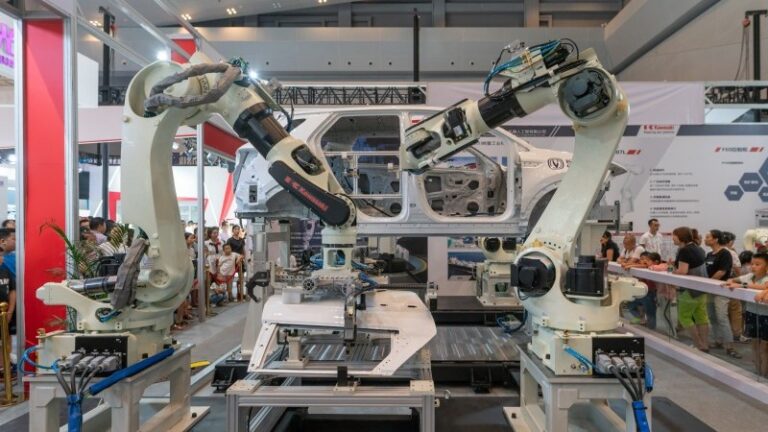
New areas for growth
One area for growth lies in the digitisation of manufacturing and industry. The consumer-based cyberspace has been developed to a more advanced level compared to that seen in industry. The 14th Five-Year Plan highlights the need for automation, the application of robots, algorithms and blockchain applications for industrial use. And the more recent 20th Party Congress highlighted advanced technology as one of the pillars for future growth. These policies should steer the future of cyberspace in a new direction, giving existing internet companies an opportunity to create growth.
The main benefits will come from an increase in the efficiency of production. Big data will play an important role just as it does in consumer cyberspace. Deficiencies in production and streamlining production operations are the two areas where big data could shorten production time and improve quality.
In 2019, the digital industrial economy was CNY7.1 trillion, having grown 11.1% year-on-year. That was slower than the 14.8% growth of the tertiary industry (mainly consumer-based). We estimate that the value of the digital industrial economy was CNY11 trillion in 2021. Even with strong growth in the past few years, this value is still small relative to China’s digital economy of CNY45.5 trillion in that year.
But the trend is going to change. China has begun to specialise more in higher value-add production, big data and AI. This implies the internet of things could be widely applied. This trend is also partly forced by the ageing workforce. More importantly, the 20th Party Congress highlights the need to advance technology for the economy’s future development, which should result in a boom in R&D for industrial technology, mainly in 2024-2027. We assume no big breakthroughs in industrial technology from the R&D spending, e.g. breakthroughs in advanced semiconductor chips. But some R&D results could benefit industrial activity, e.g. further robotisation and a more comprehensive internet of things.
We estimate that the value of industrial cyberspace could reach CNY80 trillion in 2030 in real terms, and would contribute 40% to the overall digital economy in China by 2030.
This estimate means the digital industrial economy could grow ninefold over the coming decade. Fast growth in this area could mean that the overall digital economy would be more balanced, with contributions of 60% from the consumer segment and 40% from the industrial segment by 2030, compared to the ratio of 81% to 19% in 2020.